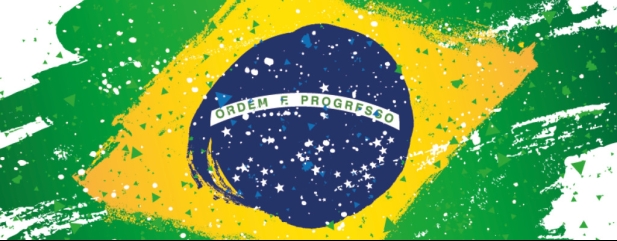Archived article
Please note that tax, investment, pension and ISA rules can change and the information and any views contained in this article may now be inaccurate.
Lula stages remarkable political comeback to lead Brazil for a third term

After a fierce campaign with far-right incumbent Jair Bolsonaro, former president Luiz Ignacio Lula de Silva won the second round of elections on Sunday to become Brazil’s leader for a third term.
However, the narrowness of Lula’s win – by 50.9% against Bolsonaro’s 49.1% after a three-hour count – demonstrates how deep conservative sentiment now runs and how split Brazil has become since he was last in power.
As Shares went to press, it still wasn’t clear whether Bolsonaro had officially conceded or whether he would stage a Trump-style protest claiming the election was rigged.
Lula, who was charged with corruption by the Bolsonaro regime in 2018 and spent more than a year and a half in jail, was the most widely-liked Brazilian leader in history with Barack Obama once calling him ‘the most popular politician on Earth’.
He will need all the public support he can get to push through his left-of-centre policies given large swathes of the country including Sao Paolo and two more heavily-populated states are held by the opposition.
Having previously been seen by markets as a radical, Lula kept his policies vague during the election focusing on social justice and the environment.
When he first came to power in 2003, inflation was more than 15% and interest rates were 20% but by the end of his second term those in early 2012 figures were 5% and 9%, a sizeable achievement.
In contrast, inflation has been higher than interest rates for most of the last two years, meaning real interest rates have been negative, and now stands at close to 9% so he needs to allay fears and keep markets onside.
That is easier said than done, although some commentators have suggested he could ‘lean’ on state-owned oil and gas company Petrobras (PBR:BCBA) to keep prices artificially low.
Investors will also want to see how whether he sticks to his pledge during his campaign to abolish the financial cap on social projects and infrastructure and how he intends to finance this spending.
So far this year the Brazilian Bovespa index has risen around 10% while the MSCI World Index has fallen over 20%, making it a strong outperformer.
‘Latin America has been a bright spot amid turbulent global stock markets’, says Sam Vecht, co-manager of the $115 million BlackRock Latin American Investment Trust (BRLA) which has around a two-thirds weighting to Brazil.
While high commodity prices have given it a boost, ‘the region was long due a reappraisal by global investors. In the vogue for a narrow range of US and Asia technology companies, Latin America was side-stepped’ argues Vecht.
Important information:
These articles are provided by Shares magazine which is published by AJ Bell Media, a part of AJ Bell. Shares is not written by AJ Bell.
Shares is provided for your general information and use and is not a personal recommendation to invest. It is not intended to be relied upon by you in making or not making any investment decisions. The investments referred to in these articles will not be suitable for all investors. If in doubt please seek appropriate independent financial advice.
Investors acting on the information in these articles do so at their own risk and AJ Bell Media and its staff do not accept liability for losses suffered by investors as a result of their investment decisions.
Issue contents
Editor's View
Feature
Great Ideas
News
- Investors turn wary eye to Marks & Spencer and Primark-owner
- US inflation remains sticky, but some there are signs it could be peaking
- Halfords investors rejoice as the retailer’s share price finally starts to recover
- Why shares in On The Beach remain down in the dumps
- RELX and CentralNic stand out in latest batch of earnings upgrades and downgrades
- Lula stages remarkable political comeback to lead Brazil for a third term

 magazine
magazine








